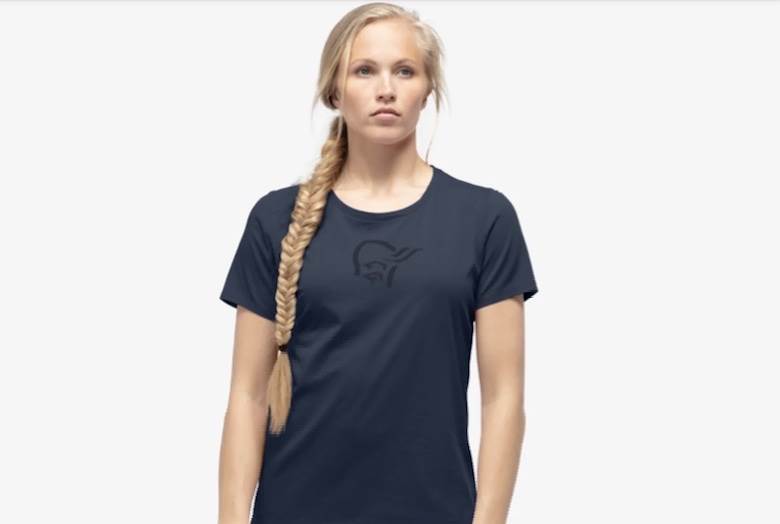Norwegian authorities rule Higg-based marketing claims ‘misleading’

The Norwegian Consumer Authority (NCA) has concluded an investigation into sustainability claims from outdoor brand Norrøna. Its conclusion is that environmental claims Norrøna makes for some garments, based on data from the Higg Materials Sustainability Index (MSI), are misleading for consumers.
It has ruled that Norrøna may no longer include these claims in its product descriptions and marketing campaigns and has asked the brand to change or remove the relevant marketing information. It has given Norrøna until August 14 to do this.
At the heart of the investigation, which the NCA began in February 2022 and for which it received detailed background information from Norrøna, are claims the brand made about T-shirts made from organic cotton. It presented these products as having a lower environmental impact than similar garments made from conventional cotton, basing its claims on the Higg MSI.
Water consumption is the impact category that shows the most significant reduction in environmental impact compared to conventional cotton, the NCA said, with Norrøna presenting to its customers an estimated saving of 87%.
“As far as we understand it, the real reason behind the substantial reduction in water consumption in global average numbers is because organic cotton farms typically are located in places with more rainfall compared to most conventional cotton farms,” the Norwegian Consumer Authority said. “Thus, the real reason behind the reduction in water consumption is not because organic cotton farms always require less water compared to conventional cotton farms, but rather because of variations in rainfall in the regions where the respective cotton farms are located.”
For example, it concluded that if the organic cotton in a particular product happened to have been grown in an area with little rainfall, any claim of reduced water usage based on a global average, would not be correct in this instance.
Following on from this, one of the overall reasons the NCA has offered for its findings include the fact that data in the Higg MSI is based on global averages and is not specific to the production of garments for Norrøna or any other brand. The information is, therefore “not necessarily correct for the products in question” in Norrøna’s case.
It also said some of the Higg MSI data was “scientifically outdated” and, therefore, inadequate as a basis for comparison.
Thirdly, it said the marketing information Norrøna had presented and the approach of the Higg MSI in general did not take into account “all relevant ways in which the products affect the environment”.
The NCA explained: “In order to give a nuanced and contextualised view of a product’s environmental performance, it is necessary to include all relevant factors that cause harm to the environment. If relevant impact categories are omitted, it is difficult to assess the real environmental benefits of the impact categories included in the Higg MSI.”
Based on this, and always with the likely impression on the average consumer in mind, it concluded: “The stated reductions in environmental impact of a specific organic cotton T-shirt compared to an equivalent T-shirt made from conventional cotton are, in our opinion, an oversimplified, inaccurate and imprecise depiction of the specific product’s true environmental performance.”
Please see separate story covering Norrøna’s reaction.
Image: Norrøna.










